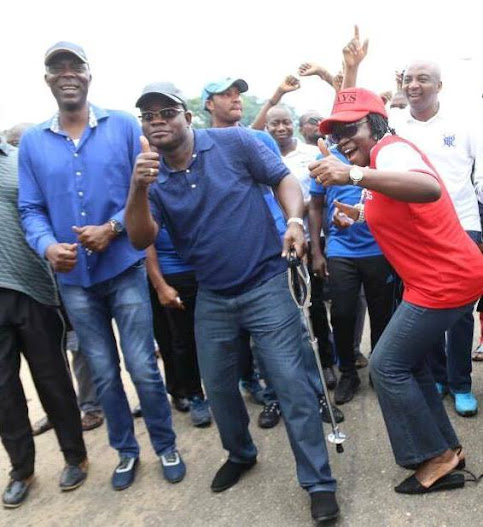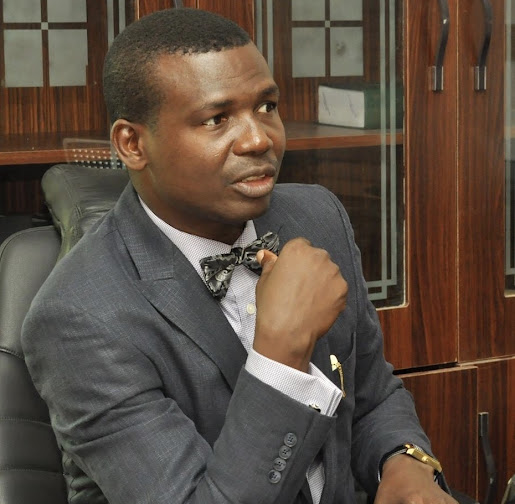By DAN AMOR
For
those who were born during or after the Nigerian Civil War, recent
publications, provide an illuminating pathway to the events that led to the
war. No nation among the third world countries makes a stronger claim on the
interest and sympathy of Africans than Nigeria. What Nigeria has meant to the
black continent and to blacks across the world, makes her future a matter of
deep concern. Nigeria might be doddering or tottering behind less endowed
African countries as a giant with feet of clay, no thanks to the tragedy of
irresponsible leadership.

*Displaced South Easterners during the Biafra-Nigeria War
But
whatever happens to her usually serves as a huge lesson for other African
countries. To view therefore with judgment and comprehension the course of
present and future events in Nigerian life and politics, we must possess
knowledge and understanding of her past, and to provide such understanding
within concise compass, we must consult history. Yet it is an unbiased,
disinterested and unprejudiced inquiry into the history of our country that
will ensure that we leave a legacy of truth for generations yet unborn.
In
fact, the true story of Nigeria must begin with the foundations of the
nation-its geographical and economic character; its socio-political and
religious influences and the psychology of its peoples.
Besides
the existence of multi-ethnic nationalities before the fusion of the Northern
and Southern Protectorates in 1914 by Lord Fredrick Lugard, a British
imperialist military commander, and the almost 100 years of British colonial
rule, the great period of post-independence crisis – 1960 – 1970 – must be vividly
delineated for posterity.
The
death in November 2011 of Dim Chukwuemeka Odumegwu-Ojukwu who has come to
symbolise that great epoch of epic struggle brought to the front burner of
national discourse, the issues and convergent forces at play in the Nigerian
Civil War. But recent developments point to the fact that our leaders who
prefer to learn their geology the day after the earthquake would want history
to repeat itself.
Unfortunately,
rather than telling in bold dramatic relief, the tragic and magnificent story
of what brought about the war and its aftermath, some commentators have elected
to mislead the reading public on who actually caused the war. Some have even
pointedly accused Chief Ojukwu of having masterminded the war in order to divide
Nigeria.
What
can be more mischievously misleading than the deliberate refusal to allow the
historical sense transcend the ephemeral currents of the present and reveal the
spirit of a people springing from the deepest traditions of their tragic
experience? How could one begin to appreciate a legend who continued to be
astonishingly misunderstood even when the realities of the factors that pushed
him to rise in defense of his people are damning on the rest of us more than 50
years after his action? Why is it so difficult for us to appreciate the fact
that Ojukwu had come to represent, in large and essential measure, not only a
signification of heroism but also a courageous attempt to say no to an emerging
oligarchy which was bent on annihilating his people from the face of the earth?

No Nigerian in his right senses should support any nebulous
attempt to re-awaken the Biafran experience. But if we believe the time-tested
aphorism that few men are austere or dull-witted enough to scorn the pageantry
and romance of history, then we must ask ourselves why, for God’s sake, would
people become so barren in thought as to hold the view that Ojukwu caused the
Nigerian Civil or what some mischievously call the Biafran War?
Even
for those of us who were born during the holocaust that was the war itself, a
deep reflection on what brought it about cannot in all sincerity be divorced
from the greed and unbridled ambition of Nigerian politicians – the quest to
dominate others and the winner-takes-all mentality of the lackeys to whom the
colonialists handed over power on a platter of gold.
Why
must we forget so soon the blatant rigging of the 1964 Western Region election
by the Federal government – controlled Northern Peoples Congress (NPC) in
favour of S.A. Akintola at the expense of Chief Obafemi Awolowo of the Action
Group who was believed to have won that election in the first place? How can we
forget so soon that it was the upheaval that followed that manipulation in the
Western Region and the inability of the government at the centre to contain it
that orchestrated the January 15, 1996 military coup and its aftermath?
In
fact, in all the accounts of the developments that led to the war, both local
and international, none particularly mentioned Ojukwu as a key player in either
the coup of January 1966 or the July 29, 1966 counter revolutionary coup led by
young Hausa/Fulani soldiers. Ojukwu’s response to the wanton killings of Igbo
and other nationals of Eastern Nigerian origin was a latter day development
which in all practical purposes followed the natural course of history. He was
just an uncommon patriot who responded decisively to the issues of the day.
We
bow courteously before the mighty personages of other traditions. The appeal of
Nigeria’s annals is not that of a success story. The record of our soulless
country is strangely somber. Like in France, our earliest heroes might be
heroes of defeat. But the story is shot through with episodes of unequaled
magnificence. That history is repeating itself just as we recall our ugly past
shows that it is the destiny of Nigeria to live dangerously.
Last
month, January 15, 2021, Nigerian leaders pretended to have marked the 51st
anniversary of the end of the Nigerian Civil War. All of them, including the
victims of the war itself who pretend not to know, went to the graves of the
"unknown soldiers" to lay wreaths in remembrance of the supreme price
they paid for Nigeria to be one. Yet, in the minds of most notoriously
undemocratic Nigerians, the war has not yet ended and the country is not yet
one. The last administration made an Igboman Chief of Army Staff and brought
the Civil War to its knees. He prosecuted the Boko Haram war almost to its
logical conclusion.

But
another man came and reversed what the last administration did by insisting
that an Igbo cannot be Chief of Army Staff; cannot be Chief of Air Staff;
cannot be Chief of Naval Staff; cannot be Chief of Defense Staff and cannot
even be Inspector General of Police. The current one is saying that the civil
war has not ended; that the vice presidency which the South East attained seven
years after the war was an error. No. It is not true. The Civil War which ended
on January 15, 1970 must be laid to rest. No victor, no vanquished.
Between
1800 and 1945, there have been pockets of civil wars across the world before
the Nigerian Civil War which was fought between 1967 and 1970. There was the
Castle Hill convict rebellion, 1804; the Gutierrez-Magee Expedition (Texas)
1812-1813; Argentine Civil Wars, 1814-1880; Zulu Civil War, 1817-1819. There
was also the Long Expedition (Texas), 1818, 1821; the Greek Civil War,
1824-1825; the Freedom Rebellion (Texas), 1826-1827; Liberal Wars (Portugal),
1828-1834. The American Civil War was fought between April 12, 1861 and May 9,
1865 and the Spanish Civil War was prosecuted between July 17, 1936 and April
1, 1939. All these civil wars ended and the respective countries became more
united than before.
If
the Nigerian Civil War has been fought and won or declared "no victor, no
vanquished" by Gen. Yakubu Gowon, then it must have meaning and the end
taken to its logical conclusion. The South East must produce the next Inspector
General of Police and the Service Chiefs, for Nigeria to move forward. God has
endowed this country with all that is needed for it to blossom into one of the
best countries in the world. We must end sectional greed and domineering
postures for Nigeria to get there. The Nigerian Civil War must end without much
ado. Let this country be great again.
*Amor,
a public affairs analyst resides in Abuja






















